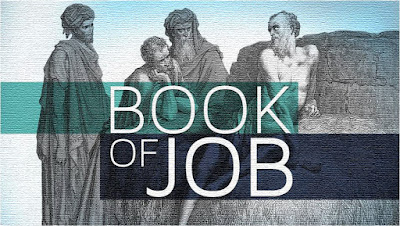Readings for this week
Monday: Job 27
Tuesday: Job 28
Wednesday: Job 29
Thursday: Job 30
Friday: Job 31
Saturday: Job 32
Sunday: Job 33
Tuesday: Job 28
Wednesday: Job 29
Thursday: Job 30
Friday: Job 31
Saturday: Job 32
Sunday: Job 33
Introduction to Job 27-33
Chapters 27-31
Job’s friends all have their own opinions about why Job is suffering the way he is. They continue to take turns trying to come up with explanations.
Job said, "My heart does not reproach me. Let my enemy be as the wicked! His many sons are for the sword. The wind sweeps him from his place.There is a mine for silver, but where is wisdom found? It is hidden from the eyes of all living. The fear of the Lord is wisdom! Oh, for the days when God watched over me! When I took my seat in the square. I was father to the needy and comforted the mourners. But now younger men mock me. They do not hesitate to spit at me. God has cast me into the mire. When I expected good, evil came. Does God not see my ways? Have I lied? Have I refused to help the poor? Have I put my trust in money? Let the Almighty answer me!"
Job said, "My heart does not reproach me. Let my enemy be as the wicked! His many sons are for the sword. The wind sweeps him from his place.There is a mine for silver, but where is wisdom found? It is hidden from the eyes of all living. The fear of the Lord is wisdom! Oh, for the days when God watched over me! When I took my seat in the square. I was father to the needy and comforted the mourners. But now younger men mock me. They do not hesitate to spit at me. God has cast me into the mire. When I expected good, evil came. Does God not see my ways? Have I lied? Have I refused to help the poor? Have I put my trust in money? Let the Almighty answer me!"
Chapters 32-33
Elihu’s Perspective (The Voice of the Wisdom Tradition)
Elihu was angry with Job and his three friends. He said, "I am young, but it is not only the old who are wise. I will have my say. Job, please listen to my words. God does speak, perhaps in a dream or through pain. He does this to deliver a person from the pit."







